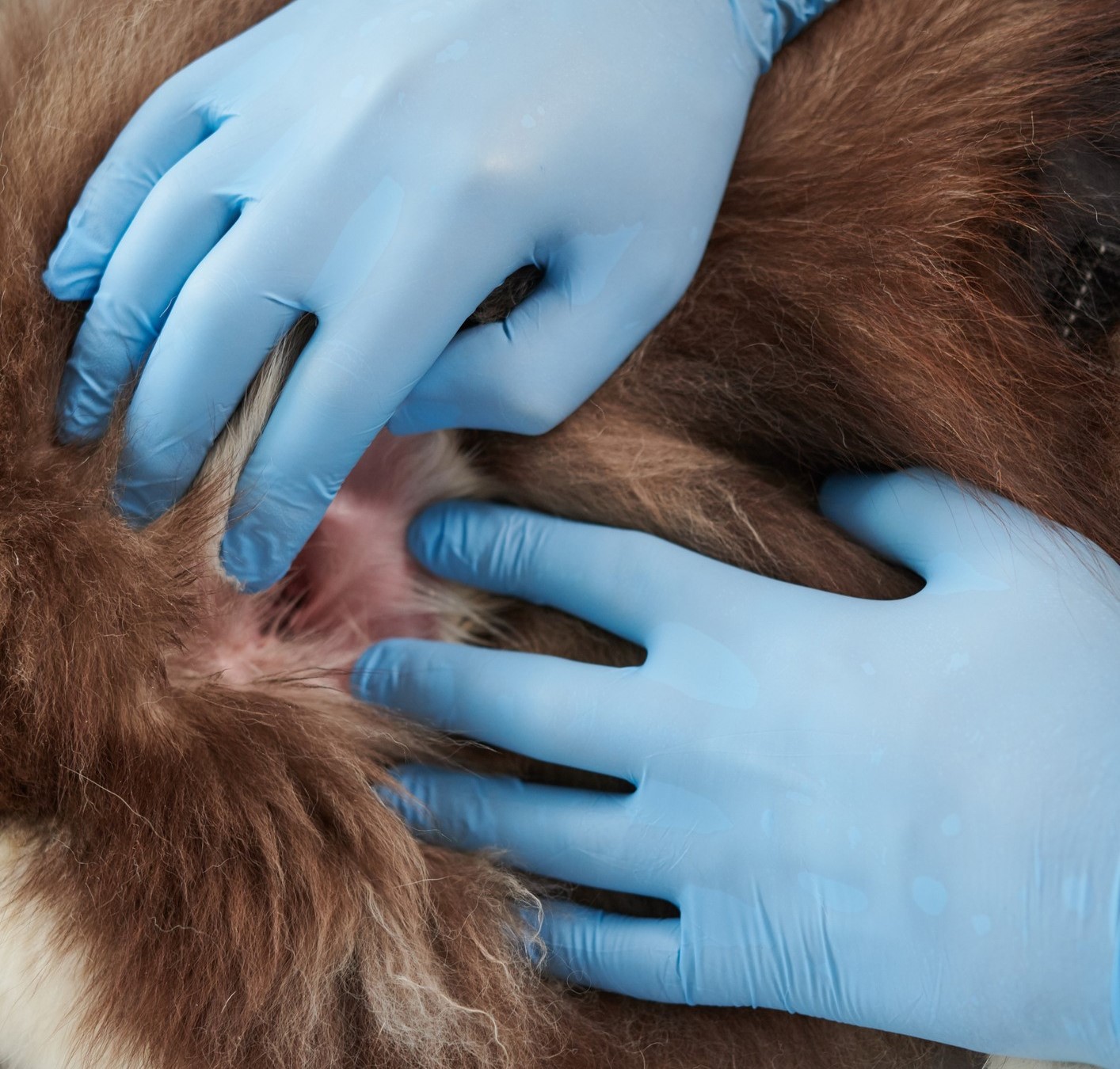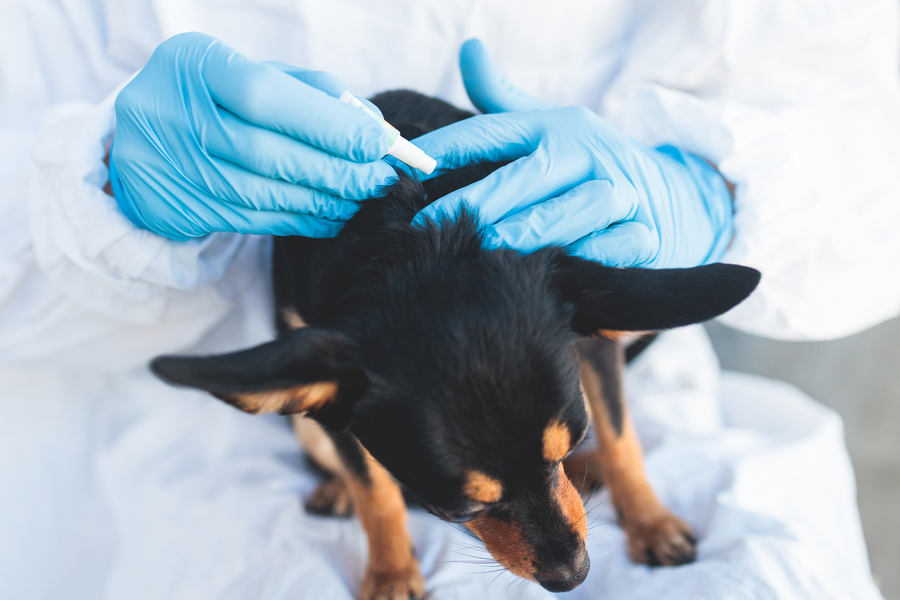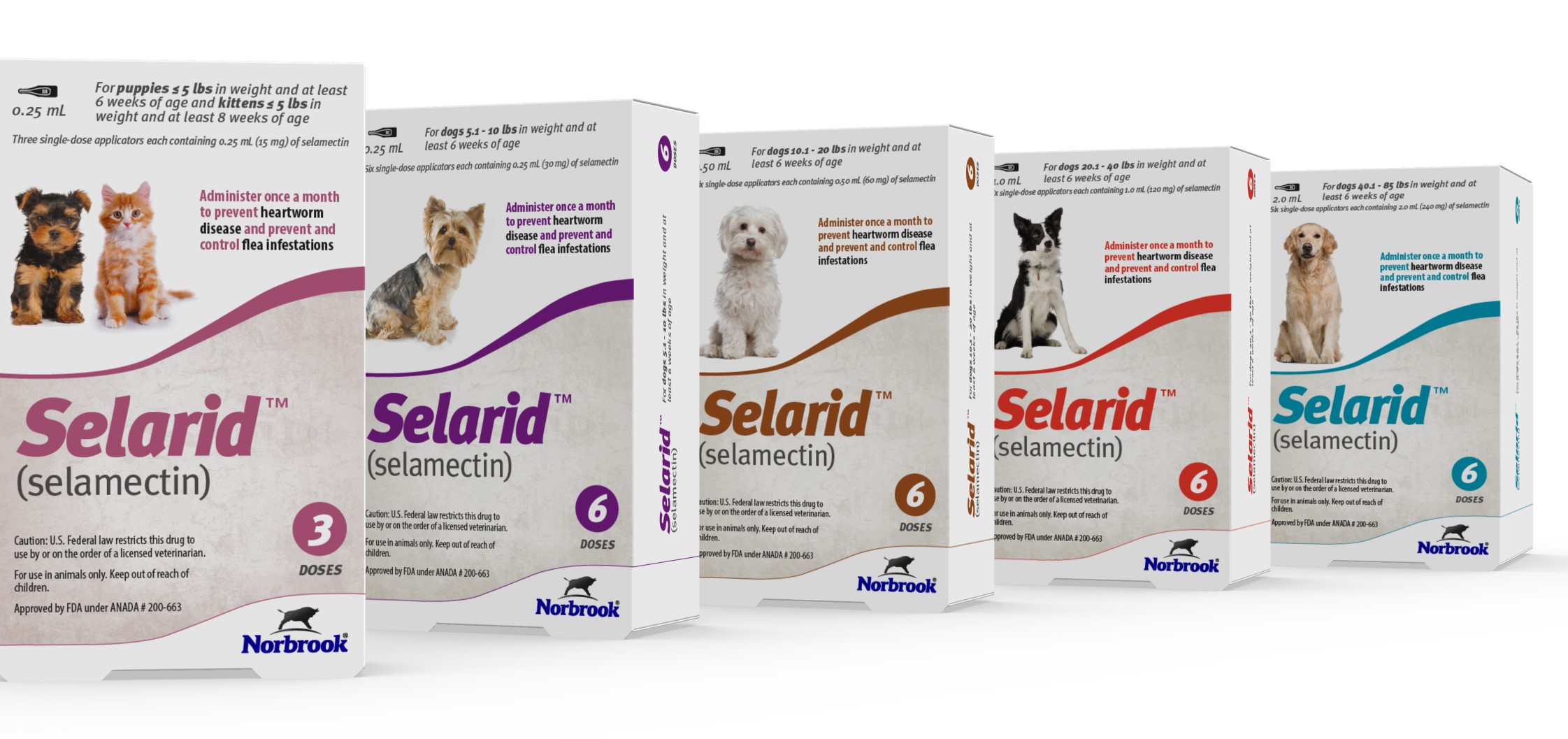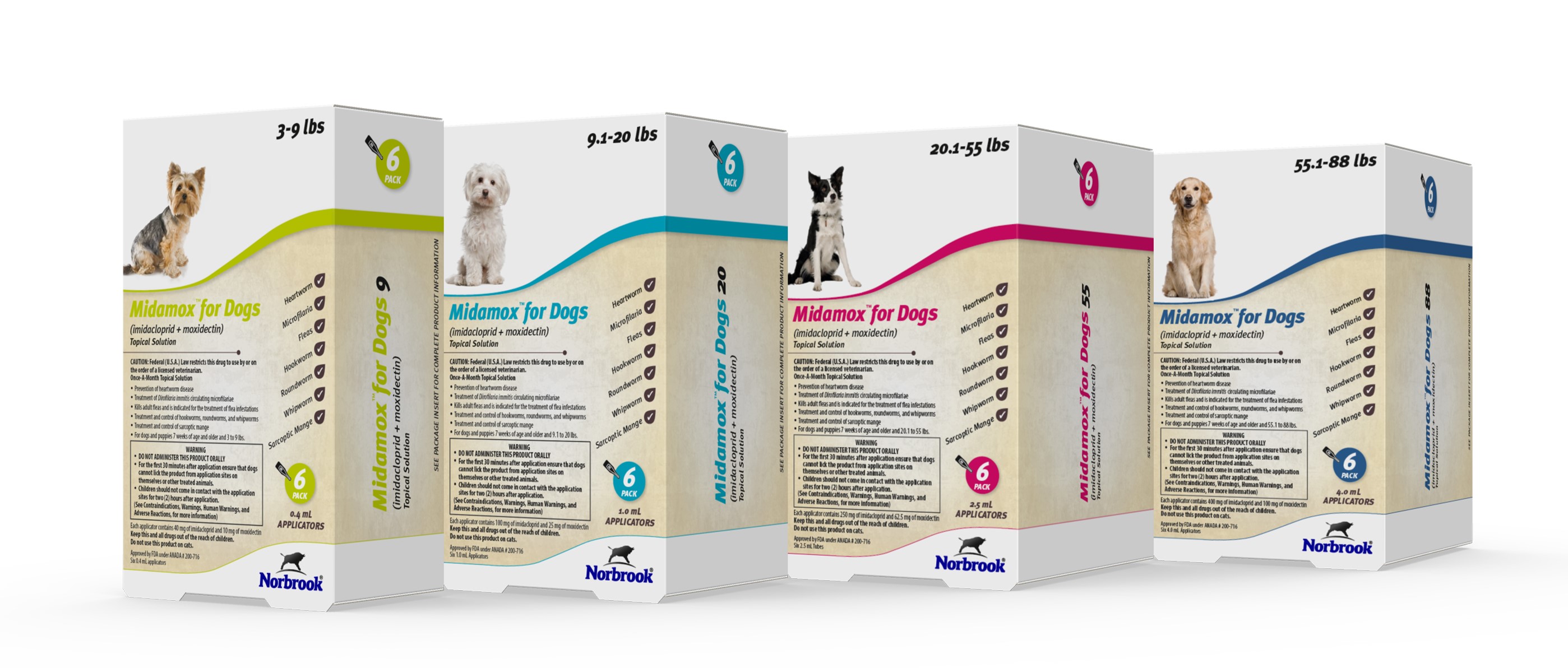
Parasite Protection for Dogs
Canine Parasite Control
Parasites are a common health concern both for dogs and their owners. Many parasites in our pets are zoonotic, meaning that they also pose a risk for their human counterparts. Regular preventive medications are recommended for all dogs, as well as periodic testing for heartworms, tick-borne diseases, and gastrointestinal (GI) parasites.
External Parasites in Dogs
Learn more about the most common external parasites in dogs.
Internal Parasites in Dogs
Learn more about the most common internal parasites in dogs and how to identify the signs of infection.
Treatment
Management of parasites in dogs involves preventing and treating infections.
Prevention
-
Regular deworming: Puppies need regular deworming, as several parasites are passed from the mother to her puppy, even if the mother has no signs of parasitic infections. Adult dogs should be screened for parasitic infections with regular physical exams and fecal testing.
-
Use preventive medications: Dogs should receive regular flea, tick, and heartworm prevention. There are several preventive products available including monthly topical products such as Selarid® (selamectin) Topical Parasiticide for Dogs and Midamox® (imidacloprid + moxidectin) for Dogs, longer acting topical and oral products, and even a long-acting injectable product, each targeting specific parasites. Your veterinarian can help direct you to the best option for your pet. Preventive products also reduce overall environmental contamination and potential for zoonotic disease.
-
Clean up feces: Pick up your dog’s stool every day. This will reduce the parasite burden in the environment and help to eliminate accidental consumption of infective eggs. Be sure to wash your hands after cleaning up after them.


Treatment
If you see any signs of a parasite infection in your dog, please visit your veterinarian. Treatment of parasites in dogs requires an accurate diagnosis and the care of your veterinarian. Tests such as fecal examination, heartworm test, or a skin scrape may be required. Treatment may be as simple as administering a topical product such as Selarid® or Midamox®, or may require administration of an oral or injectable medication.
Safety Information
Selarid® (selamectin) Topical Parasiticide for Dogs
IMPORTANT SAFETY INFORMATION:
Do not use SELARID on sick, weak or underweight dogs. Use only on dogs 6 weeks and older. Prior to administration, dogs should be tested for heartworms. In people, SELARID may be irritating to skin and eyes. Wash hands after use. See product labeling here for full product information.
Midamox® (imidacloprid + moxidectin) for Dogs
CAUTION: Federal (U.S.A.) law restricts this drug to use by or on the order of a licensed veterinarian. WARNING: DO NOT ADMINISTER THIS PRODUCT ORALLY. For the first 30 minutes after application ensure that dogs cannot lick the product from application sites on themselves or other treated animals. Children should not come in contact with the application sites for two (2) hours after application. (See Contraindications, Warnings, Human Warnings, and Adverse Reactions for more information.) CONTRAINDICATIONS: Do not use this product on cats. See product labeling here for full product information.
The Norbrook logo, Selarid and Midamox are registered trademarks of Norbrook Laboratories Limited.
002-25-152




